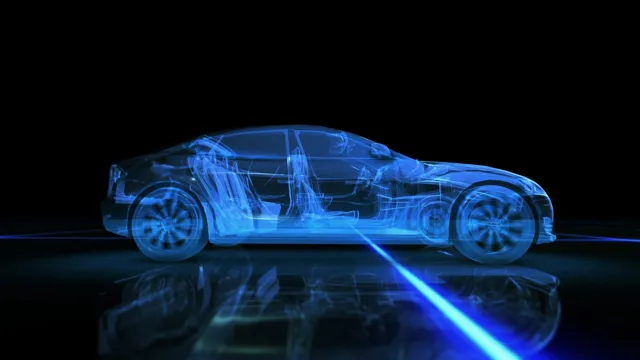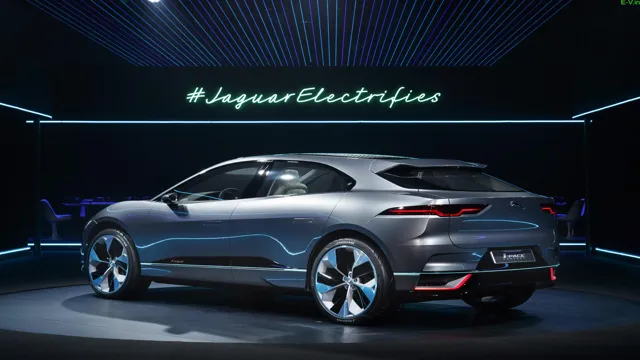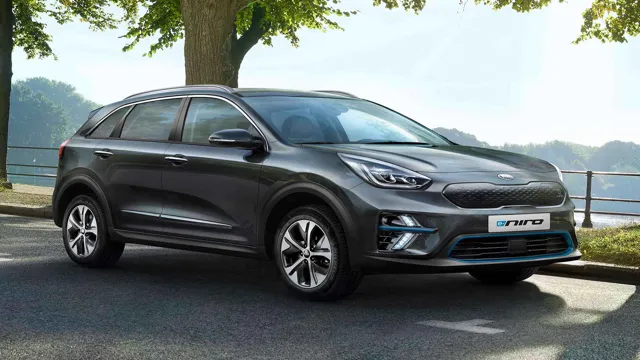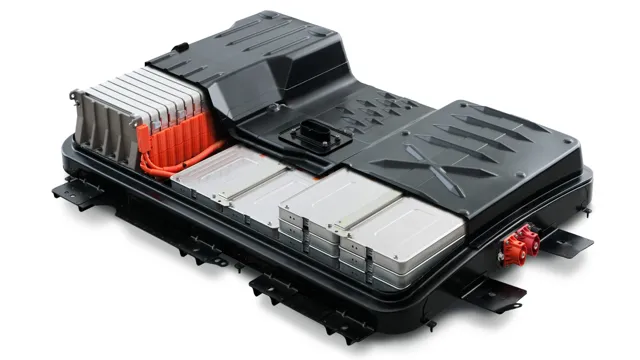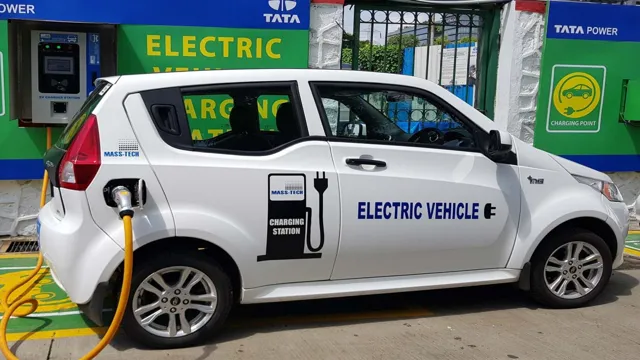Revving Up the Future: The Electrifying Role of Technology in Cars
Electric cars have been around for over 100 years, but their evolution has only gained significant attention in recent times. With technological advancements and increased environmental concerns, electric cars have become a more feasible and appealing option for many individuals and businesses. From the earliest versions of electric cars to the latest models, the changes and improvements made have been astounding.
It’s fascinating to think that the electric car we know and love today was once just a concept. The evolution of electric cars is a captivating story that is still unfolding. Advancements in battery technology have made electric cars even more practical, allowing them to travel longer distances than before.
The increasing number of charging stations has also eased any anxiety about running out of charge while on the road. As electric cars become more mainstream, it’s exciting to imagine the new innovations that will arise in this field. According to statistics, the demand for electric cars has increased significantly in recent years.
Although they’re still more expensive than their gasoline counterparts, the benefits of owning an electric car are becoming more apparent. Besides being eco-friendly, electric cars are more efficient, require less maintenance, and can ultimately save owners money in the long run. Moreover, electric cars have been embraced by automakers as a way to meet stricter environmental regulations and decrease carbon emissions.
The future of the electric car industry is bright, and the evolution of electric cars continues to be a fascinating topic that sparks curiosity in many people. With significant changes happening in the automotive industry, it will be interesting to see what new innovations are born and how electric cars will continue to shape our world. So, hop on, let’s take a ride through the history of electric cars and discover their journey so far.
Zero Emissions: The Environmental Impact
Electric technology in cars is having a major impact on the environment due to the reduction of emissions. Zero-emissions vehicles and fully electric cars do not emit any harmful gases or pollutants into the air like traditional gas-fueled vehicles do. This has led to a decrease in greenhouse gas emissions, which is crucial in the fight against climate change.
By using electric vehicles, we can reduce our overall carbon footprint and contribute towards a healthier planet. In addition, electric cars have the potential to reduce noise pollution, which can positively impact urban areas with high levels of traffic. While the adoption of electric vehicles is still in its early stages, the potential for environmental benefits is significant.
With governments and industries implementing incentives and investing in infrastructure for electric vehicles, we can look towards a cleaner and sustainable future.
Statistics on Greenhouse Gas Emissions
Greenhouse gas emissions contribute significantly to the degradation of our environment. Statistics show that the top three greenhouse gases, carbon dioxide, methane, and nitrous oxide, are increasing rapidly due to human activities such as burning fossil fuels, deforestation, and intensive agriculture. In fact, in 2019 alone, carbon dioxide emissions reached a staggering 3
4 billion tonnes, and the concentration in the atmosphere is now over 400 parts per million. This has led to global warming, melting ice caps, rising sea levels, and extreme weather patterns such as hurricanes and droughts. However, the concept of zero emissions is gaining momentum and offers hope for the future.
It involves reducing emissions through the development of sustainable practices such as renewable energy, regenerative agriculture, and the adoption of circular economies. This approach has the potential to reverse the damage inflicted on our planet. The choice is ours, and it’s time to make a difference.
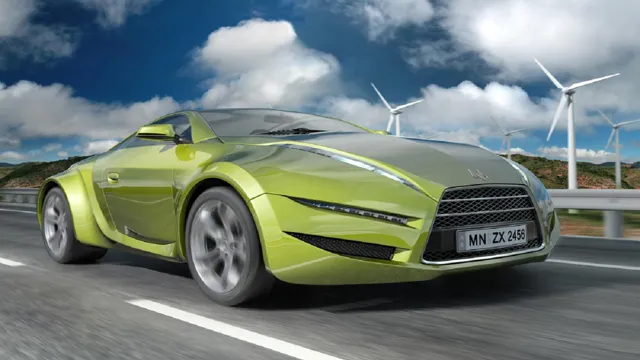
The Use of Renewable Energy in Electric Cars
Renewable Energy, Electric Cars, Zero Emissions One of the main benefits of electric cars is that they can run on renewable energy, which greatly reduces their impact on the environment. Unlike gasoline-powered cars, electric vehicles emit zero emissions when they are in operation. This means that they do not contribute to air pollution or climate change.
Renewable energy sources, such as solar or wind power, can be used to generate the electricity needed to charge electric car batteries. This creates a sustainable transportation system that relies on clean energy instead of depleting fossil fuels. Using renewable energy to power electric cars is not only good for the environment, but it also reduces our dependence on non-renewable energy sources.
By promoting the use of renewable energy in transportation, we can help to create a cleaner and more sustainable future for generations to come.
Cost Efficiency: Saving Money with Electric Cars
Electric technology in cars has brought about significant cost savings for individuals and businesses alike. With the increasing affordability of electric vehicles and access to charging infrastructure, the long-term cost efficiency of electric cars is becoming undeniable. Electric cars offer financial benefits such as lower fuel and maintenance costs, tax incentives and rebates, and potential savings from reduced air pollution and emissions.
Additionally, electric cars tend to have fewer moving parts, reducing the likelihood of costly repairs. As technology continues to evolve, the cost of electric vehicles is expected to decrease even further, making them even more accessible to consumers. By investing in electric cars now, individuals can reap the financial benefits and help contribute to a more sustainable future.
Comparing Gasoline and Electric Cars’ Fuel Costs
Electric cars are becoming increasingly popular due to their fuel efficiency and cost savings. When comparing gasoline and electric cars’ fuel costs, it’s clear that electric cars are a more cost-efficient option in the long run. While gasoline prices can fluctuate and increase over time, electric cars’ fuel costs remain relatively stable and are significantly cheaper.
Additionally, electric cars have fewer maintenance costs, including oil changes and engine repairs. While the initial cost of purchasing an electric car may be higher than a gasoline car, the long-term cost savings make it a more practical and affordable option. Overall, electric cars are the way of the future, providing not only cost savings but also environmentally friendly benefits.
Long-Term Financial Benefits of Owning an Electric Car
Electric cars are not only eco-friendly, but they can also save you a lot of money in the long run. Cost efficiency is one of the major benefits of owning an electric car. Electric cars are cheaper to maintain and operate than traditional gasoline-powered cars.
You may have to pay a higher upfront cost, but in the long run, you will end up saving a lot of money. One of the biggest savings you will make is in fuel costs. Electric cars can be charged at home using a regular power outlet, and it’s a lot cheaper than filling up a gas tank.
The cost of electricity is much lower than the cost of gasoline. Another great thing about electric cars is that they require less maintenance. You don’t need to change the oil or replace the spark plugs.
Electric cars have fewer moving parts which means fewer things to replace. The brakes also last longer because of regenerative braking. All these factors add up and in the long run, owning an electric car can save you a lot of money.
Government Incentives for Switching to Electric Cars
If you’re considering making the switch to an electric car, the cost efficiency alone might convince you to take the plunge. While the initial investment may be higher than a traditional gas-powered vehicle, the long-term savings can be immense. Not only do electric cars require less maintenance, including oil changes and brake replacements, but they also cost significantly less to operate.
According to the US Department of Energy, the cost to operate an electric car is about half as much as a gas-powered car. And if you purchase an electric car with a longer range, you’ll save even more money on gas. Additionally, many governments around the world offer incentives for switching to electric cars, such as tax credits and rebates.
So not only can you save money in the long run, but you can also take advantage of financial incentives from the government. Overall, if you’re looking to save money and do your part for the environment, switching to an electric car is a smart choice.
Innovations in Electric Car Technology
Electric technology in cars has come a long way since the inception of electric vehicles. Innovations in electric car technology have made these cars more powerful, reliable, and efficient than ever before. One of the latest trends in electric vehicle technology is the use of solid-state batteries, which are more energy-dense and efficient than traditional lithium-ion batteries.
Another innovation in electric car technology is the implementation of regenerative braking, which helps to capture energy lost during braking and turn it back into electricity that can be used to power the car. Additionally, electric cars are becoming more intelligent through the use of AI and advanced software, allowing for better predictions of driver behavior and environmental conditions. The future is bright for electric technology in cars, and with continued innovation and advancements, we can expect to see even more breakthroughs in the near future.
Battery Advancements: Range and Charging Time Improvements
Electric car battery technology is constantly improving, with advancements in both range and charging time being the driving forces behind continued innovation. Major automakers are investing heavily in research and development to create batteries that can go further on a single charge, with ranges of 300 miles or more becoming increasingly common. Additionally, charging times are also being reduced, with new fast-charging technologies allowing for a full recharge in just minutes rather than hours.
These advancements are crucial in making electric vehicles more appealing to consumers, and as technology continues to evolve, we can expect even greater improvements in battery performance in the years to come.
Connected Cars: The Integration of Electric and Autonomous Technology
Innovations in Electric Car Technology are rapidly transforming the world of driving as we know it. Connected cars, powered by electricity, are gradually replacing traditional gasoline vehicles and setting the standards for the future. One major innovation is the development of electric batteries, which store energy for longer periods, take less time to charge, and allow for greater driving range.
This means that drivers can enjoy longer trips without worrying about running out of fuel. Additionally, the integration of autonomous technology, such as self-driving features, have made cars smarter and more efficient, improving safety and reducing the risk of accidents caused by human error. As the demand for eco-friendly transportation increases, we can expect even more exciting innovations in the electric car market, which is rapidly revolutionizing the way we live and travel.
The Future of Electric Cars
Electric technology in cars has revolutionized the automobile industry, and the future of electric cars looks promising. With advancements in battery technology, electric cars can now travel greater distances on a single charge, making them more practical for everyday use. Additionally, the growing availability of charging stations makes it more convenient to own an electric car, reducing concerns about running out of power while on the road.
The rise of electric cars has also contributed to the reduction of greenhouse gas emissions, providing a cleaner and more eco-friendly alternative to traditional gasoline-powered vehicles. However, there are still challenges to be addressed, such as the high cost of electric cars and the need for further infrastructure development. Nevertheless, as technology and accessibility continue to improve, electric cars are expected to become more widespread and eventually dominate the automobile market.
Conclusion
Electric technology in cars is the spark that ignites innovation and revolutionizes the way we commute. From the sleek appeal of Teslas to the eco-friendly benefits of electric cars, the future is undoubtedly electric. As we push for a sustainable tomorrow, the electric car remains a beacon of hope, shining a light on the potential of technology to build a better world.
So let’s charge ahead together, electrifying the roads and leaving gasoline in the dust. After all, the future is bright, and it runs on electricity.”
FAQs
What is electric technology in cars?
Electric technology in cars refers to a vehicle’s ability to run solely on an electric battery-powered motor, rather than relying on traditional gasoline or diesel fuel.
How does electric technology in cars differ from hybrid technology?
While both electric and hybrid cars use electric motors, hybrids also have a gasoline engine that provides additional power when needed, while electric cars solely rely on their battery-powered motor.
What are the benefits of electric technology in cars?
Electric cars are more efficient, produce lower emissions, and have lower operating costs compared to traditional gas-powered vehicles. They also have fewer moving parts, resulting in less maintenance.
How long does the battery of an electric car last?
The lifespan of an electric car battery depends on several factors, including the type of battery, the climate in which the vehicle is driven, and the owner’s driving habits. However, most modern electric car batteries are designed to last 8-10 years or up to 100,000 miles before needing to be replaced.
